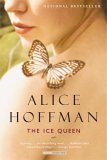Summary | Excerpt | Reviews | Readalikes | Genres & Themes | Author Bio

So I gave in.
The experts tapped at me, charted my heartbeat, examined my skeleton.
I saw a neurologist. A cardiologist. Then a psychologist. They gave me a
battery of intelligence tests and told me it was fine if I didn't
remember the names of historical figures most fifth-graders could reel
off. There were psychological tests as well; I expected as much. On
those questions I answered that everything was false.
I was informed that there were many different kinds of lightning
strikes—splash, contact, step voltage, blunt trauma, and direct hit.
Mine seemed to have been a splash—the flyswatter, it seemed, had come
between me and the full force of what can be as much as 120 million
volts. Ninety percent of lightning-strike victims survived, but 25
percent suffered major effects, some of which weren't apparent for
months or even years. My brother sent over several books, and the
medical staff loaded me down with pamphlets. I think they were all
trying not just to educate me but to let me know how lucky I was simply
to be alive.
By the end of the month, the neurologist in charge of my case, Dr.
Wyman, said I was progressing nicely. I knew I wasn't. Oh, I had moved
on from a walker to a cane, from physical therapy every day to twice a
week and finally to practicing my exercises alone. Peggy had gone on to
her next patient, an elderly man who'd fallen down the stairs and broken
every single bone in his legs. I was done as far as Peggy was concerned.
Up and about and enjoying the Florida weather, I'm sure she was
saying to the man with broken bones. Dr. Wyman was most likely
discussing me with his colleagues. Such good progress! Even when
I admitted the ocular problem, he insisted the fading of a single color
was nothing to worry about. Perhaps to him it was nothing, but to me the
loss of red was staggering; the emptiness I was left with made me weep.
In my world, a cherry was no different from a stone. Oh, how I missed
things that had never mattered to me before. An apple, a carnation, a
bird I knew to be a cardinal, which to my eyes was as gray as a dove.
There were no words for how wrong Wyman was in his assessment of my
condition. In fact, I'd been deteriorating. The crying, the coldness
inside, the fear every time I walked out the door. How could I tell the
doctor what was wrong with me? I didn't understand it myself. I couldn't
articulate the pain; it was the pain of nothingness. My fear was of the
weather, the atmosphere, the very air. What good did safety tips do me
now? Avoid water, metal objects, rooftops; stay off the telephone in
a storm; don't think glass can protect you; even if a storm is eight
miles away, you're still not safe from a strike. Avoid life, perhaps
that was the answer. The number one safety tip. Stay away from it
all.
Without words, only action would do. To show my doctor what little
progress I'd made, to show him what my world was made of, I put my hand
through the window. It was a staggeringly stupid thing to do, but maybe
Peggy had been right. Maybe I wanted help; maybe I was desperate for it.
I was trapped behind glass, cold, empty, dead inside. Such was my
condition, Doctor, if you really want to know: shattered.
The Science Center was cool, crisp, temperature-controlled. It was a
shock to have broiling hot air stream through the broken window into the
deeply cold room. The doctor leapt back. Glass covered the floor,
shimmering. In all honesty, I had stunned myself. It was as though the
girl in my childhood story had suddenly lurched forward against her
casing of blue ice.
From The Ice Queen, pages 3-31 of the hardcover edition. Copyright © 2005 by Alice Hoffman. Reproduced with the permission of Little, Brown & Co.




To make a library it takes two volumes and a fire. Two volumes and a fire, and interest. The interest alone will ...
Click Here to find out who said this, as well as discovering other famous literary quotes!
Your guide toexceptional books
BookBrowse seeks out and recommends the best in contemporary fiction and nonfiction—books that not only engage and entertain but also deepen our understanding of ourselves and the world around us.